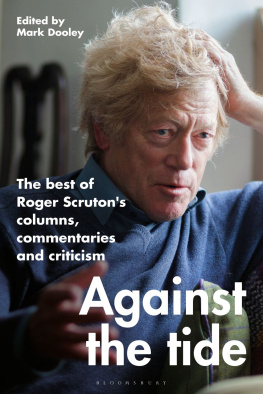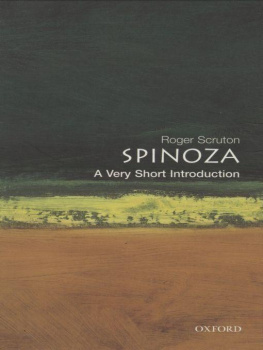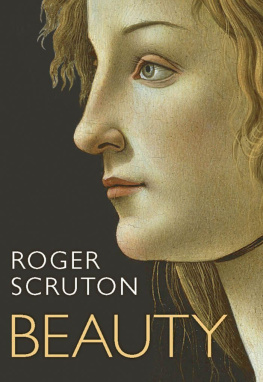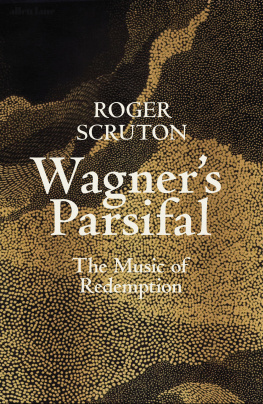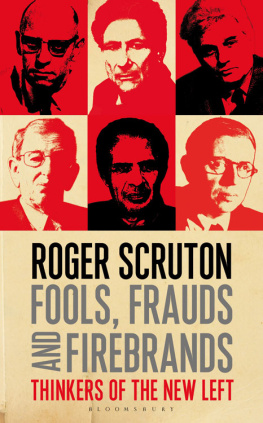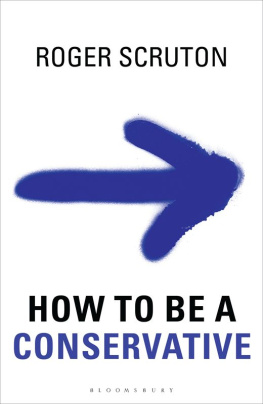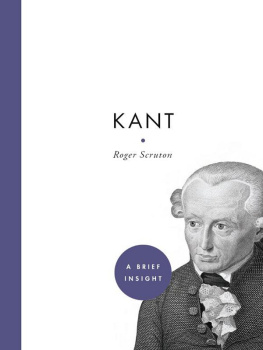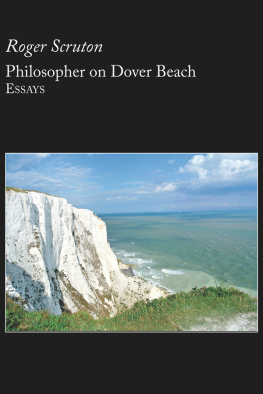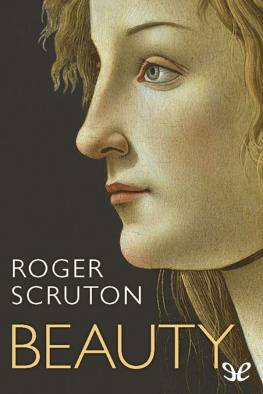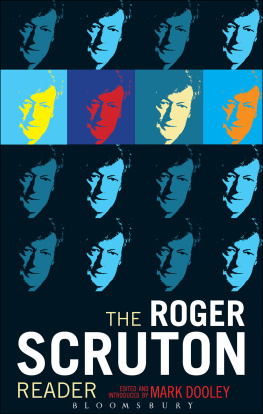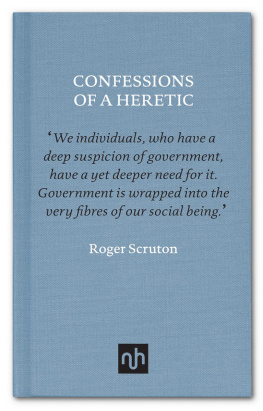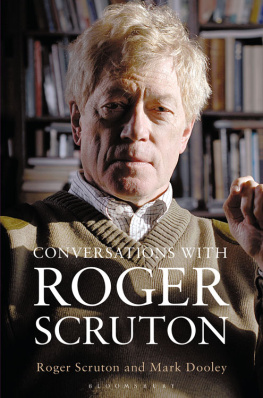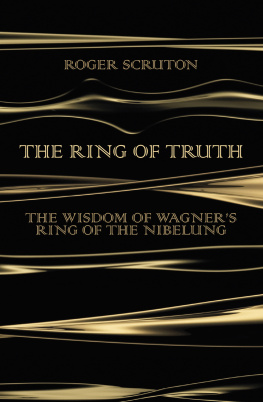

Contents
During our last conversation at his fabled Sunday Hill Farm in December 2019, Roger Scruton and I discussed many possibilities for future ventures: a sequel to our book Conversations with Roger Scruton (Bloomsbury, 2016), a series of online interviews for his YouTube channel and various conferences and seminars. Predominantly, however, our discussion focused on one important aspect of his work, and that was his journalism. After ten years I had recently ceased writing as a columnist for the Irish Daily Mail . When I remarked that it was a relief to be able to devote all my energy to writing about philosophical and spiritual matters again, Roger replied: Yes, I suppose it is, but writing about the issues that confront us is the work that must be done.
Long before he published his first book in 1974, Scruton had featured in The Spectator magazine as a reviewer and critic. Indeed, a critical piece on the French philosopher Michel Foucault appeared in a 1971 edition of that publication and is included in this volume. However, it was when Charles Douglas-Home, the then editor of The Times , invited him to become a regular columnist, in 1983, that Scrutons name became central to the national conversation. Those columns, written over a four-year period, established Scruton as one of the greatest controversialists of the age. Speaking of them himself, he remarked that, while they scandalized the intellectual establishment, they nevertheless brought comfort to those of old-fashioned views. They were frank expressions of unfashionable prejudice which gave food for thought both to those who agree with them and to those who do not.
Scrutons stint as a columnist for The Times ceased in 1986. By then he was known as a skilled writer who could tackle any subject with flair, intelligence and wit. Consequently, from that time to just before his death, he was rarely missing from the public conversation. This book is a testament to how widely respected he was as a journalist, his opinion pieces having featured in most major British and American newspapers. That is because, as he once wrote, the purpose of a newspaper column is neither to argue from first principles nor to engage in debate, but to present, as briefly as possible, a distinct point of view. The fact that he could do so on almost any topic ensured that he was always sought by commissioning editors when an unfashionable opinion needed to be expressed. However, his steadfast conviction was that opinions which are out of fashion may nonetheless be true.
Addressing me as his literary executor during our last meeting, Scruton lamented that his early columns were no longer in circulation. This book attempts to redress that in as much as it contains a broad selection of his Times columns, but it goes much further in featuring pieces from the beginning to the end of his journalistic career. His having written so much on so many subjects, it was difficult for me to select what to include and what to omit. In the end, however, I believe this book honours Rogers wishes to have his journalism collected for posterity. Moreover, I am confident it will give readers a clear sense of Scrutons power as a writer and columnist, one whose view of the world was controversial yet so cleverly articulated that it often won praise even from his opponents.
At the age of 16 Scruton agonized over where he was going in life. Invariably, the answer would be: I must be a writer that is the thing I must be. He never thought about being an academic, let alone a philosopher. His calling was always to write poems, essays, novels, journalism and criticism. That he wrote, at a minimum, 500 words every day, proves how inexhaustible his ambition was to be not merely a writer but a great writer .
Scruton was a writer, a composer, a critic, a philosopher and, as I have said, a first-rate journalist. But, like everything else he wrote, his journalism was also a masterclass in literary precision. Consider these opening lines to a column he penned for The Times in 1984:
Who remembers Iran? Who remembers, that is, the shameful stampede of Western journalists and intellectuals to the cause of the Iranian revolution? Who remembers the hysterical propaganda campaign waged against the Shah, the lurid press reports of corruption, police oppression, palace decadence, constitutional crisis? Who remembers the thousands of Iranian students in Western universities enthusiastically absorbing the fashionable Marxist nonsense purveyed to them by armchair radicals, so as one day to lead the campaign of riot and mendacity which preceded the Shahs downfall?
This is language used not merely to convey fact but to heighten tension, to unsettle and enrage. Each word is carefully chosen to assail the defences of his enemies and to stoke the righteous fury of those seeking truth over ideological fiction. It is enticing, provocative and scintillating. It is writing at its best.
I must be a writer that is the thing I must be. And that is what Roger Scruton was: a man of letters who understood, like Hegel, that the intellectual life is ultimately a spiritual endeavour to synthesize art, music, religion, politics and philosophy. That Scruton achieved this with apparent ease belied the fact that he worked tirelessly to perfect every sentence he wrote. As he insisted in our book of conversations, craft really matters. That, like every other truth he defended, was one he never betrayed. In showcasing his scope as a writer, scholar and journalist my hope is that this volume will secure Roger Scrutons place as a thinker who, like Bertrand Russell or George Orwell, never settled for the easy life when courage in defence of unpopular causes was demanded.
I would like to conclude by thanking my fellow executor of Sir Roger Scrutons literary estate, Sophie Scruton, for her support of this project, and for her guidance, advice and enduring friendship. I also owe deep gratitude to my friend and editor Robin Baird-Smith, whose unerring support and wisdom have ensured a much better book than originally conceived. Lastly, I wish to thank my eldest son, David, whose editorial assistance was invaluable.
Mark Dooley
Dublin
July 2021
It is 20 years since the Salisbury Group (a small gathering of old-fashioned Tories, informally chaired by the Marquess of Salisbury and dedicated to the political vision of his ancestor, the great prime minister) entrusted me with the task of establishing and editing a review, having raised 5,000 among themselves for this purpose. I had just published The Meaning of Conservatism , a somewhat Hegelian defence of Tory values in the face of their betrayal by the free marketeers. My credentials as an anachronism were therefore almost as good as the third Marquesss, and I took comfort in the fact that he, despite being opposed to the spirit of his age, had succeeded in imposing his mark on it, on and off, for 20 years.
The first difficulty was that of finding people to write in an explicitly conservative journal. I had friends in the academic world who were prepared in private to confess to conservative sympathies, but they were all acutely aware of the risks attached to coming out. They had seen what a caning I had received for The Meaning of Conservatism , and few of them were far enough advanced in their academic careers to risk a similar treatment.
The second difficulty was that of establishing a readership. The money we had raised would cover the printing costs of three issues: after that the Review would have to pay for itself, which would require 600 subscribers or more. I was confident that there were at least 600 intellectual conservatives in Britain, most of whom would welcome a journal dedicated to expressing, examining and exploring their endangered worldview. The problem was finding them.

